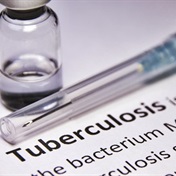Patients on treatment for multi-drug-resistant (MDR) TB may risk permanent hearing loss caused by the drugs they are taking, according to medical experts.
The six experts, from health faculties at the universities of Stellenbosch, and Cape Town, make the claim in an article in the latest issue of the SA Medical Journal.
They said a class of antibiotic drugs known as aminoglycosides, and a drug named capreomycin, were effective for treating MDR TB, but had "known dose-related adverse effects".
These effects, documented elsewhere in the world, were mainly damage to the kidneys, and ototoxicity, or damage to hearing and to the balance function of the ear. Though the effect on the kidneys was usually reversible, ototoxicity was permanent.
Aminoglycosides were known to persist in inner ear tissue for six months or longer after they were administered. "These drugs appear to generate free radicals that trigger [the] deaths of sensory cells and neurons," the experts said.
SA facing risk of many people with hearing loss from the drugs
They said despite these adverse effects, aminoglycosides were commonly used as short-course antibiotics in developing countries such as South Africa.
Together with capreomycin, they were important components of the MDR and XDR, or extensively-drug-resistant, TB regimens, which lasted six months or longer.
"South Africa is therefore potentially facing the risk of a significant proportion of the population acquiring aminoglycoside-induced permanent hearing loss," they said.
People with certain mitochondrial DNA variations were particularly at risk. One of the mutations had been found in a South African family in which 11 members were diagnosed with aminoglycoside-induced hearing loss following TB treatment.
The experts said South Africa needed to take "immediate and effective" steps to preserve the hearing of those on TB treatment.
Introducing genetic testing should be considered as part of such a strategy. South Africa is ranked fifth in the world by the World Health Organisation in terms of total numbers of TB cases, behind India, China, Indonesia and Nigeria.
Annual incidence of TB in South Africa stands at just under one in a hundred people, and it contributes a significant proportion of the MDR cases reported globally every year.
The authors of the SA Medical Journal article were Soraya Bardien and Greetje de Jong of the University of Stellenbosch's division of molecular biology and human genetics, Simon Schaaf of Stellenbosch's department of paediatrics, Tashneem Harris and Johan Fagan of the otolaryngology division of the University of Cape Town's health sciences faculty, and Lucretia Petersen of UCT's division of communication sciences and disorders. – (Sapa, June 2009)
Read more:
New drug fights drug-resistant TB
DR-TB a 'time bomb': WHO




 Publications
Publications
 Partners
Partners














